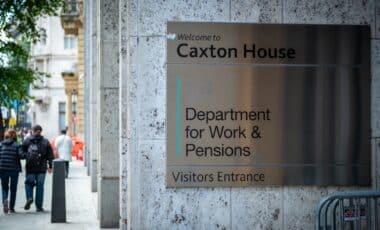More than 1.1 million UK taxpayers missed the January 31, 2025 deadline for filing their self-assessment tax returns, potentially facing penalties from HMRC (Her Majesty’s Revenue and Customs). The penalties start at £100 and increase for prolonged delays. However, some taxpayers may be eligible for appeals or leniency in specific circumstances.
Initial Penalties and Escalating Charges
HMRC imposes an initial £100 fine on taxpayers who fail to submit their self-assessment tax return by the deadline, even if no tax is due. If the return remains unfiled for three months, a daily fine of £10 is applied for up to 90 days. After six months, additional penalties amounting to 5% of the outstanding tax are imposed, and after one year, a further 5% penalty is added.
Late tax payments also accrue interest. The current interest rate is 7.25%, but it is set to increase to 8.75% in April 2025. Taxpayers who do not settle their bills within 28 days of the deadline may also face an additional 5% penalty on the unpaid amount.
Options for Appeals and Exemptions
UK taxpayers can appeal penalties if they believe they had a reasonable excuse for missing the deadline. According to HMRC guidelines, acceptable excuses include serious illness or hospitalization, the bereavement of a close relative, technical issues such as system failures or problems with HMRC’s online services, and external disruptions like extreme weather conditions.
For example, HMRC has stated that it will take a sympathetic approach to taxpayers affected by Storm Eowyn, which disrupted services in parts of the UK.
Additionally, basis period reform allows taxpayers who requested overlap relief details but did not receive them by January 31, 2025, to file provisional figures until February 28, 2025, without incurring the £100 penalty. However, tax payments must still be made on time to avoid interest charges.
Interest Rate Adjustments and Taxpayer Impact
Following a Bank of England decision to lower the base interest rate from 4.75% to 4.5%, HMRC’s late payment interest rate will decrease from 7.25% to 7% as of February 17, 2025.
This change provides minor relief to late-paying taxpayers, particularly the 1.1 million individuals facing penalties. However, experts have pointed out that HMRC’s repayment interest rate—which applies when HMRC owes money to taxpayers—remains significantly lower. Currently, repayment interest is set at 3.5%, far below the 7% late payment charge. Critics argue this imbalance is unfavorable to taxpayers.
Taxpayers should be aware of critical upcoming dates :
- February 17, 2025 – HMRC’s new lower late payment interest rate takes effect.
- February 28, 2025 – Last day for taxpayers who filed provisional figures due to basis period reform to submit accurate details.
- April 2025 – Late payment interest increases to 8.75%.
- April 5, 2025 – End of the current tax year.
- April 6, 2025 – Beginning of the 2025/26 tax year.
Individuals who still owe taxes from the 2023/24 financial year are encouraged to arrange payment as soon as possible to avoid further penalties. Those unable to meet their obligations can apply for an HMRC Time to Pay arrangement, which stops late payment penalties but does not prevent interest from accruing.
According to DevonLive, this option provides some relief for UK Taxpayers struggling to meet their tax obligations, though the accumulating interest remains a financial burden.









